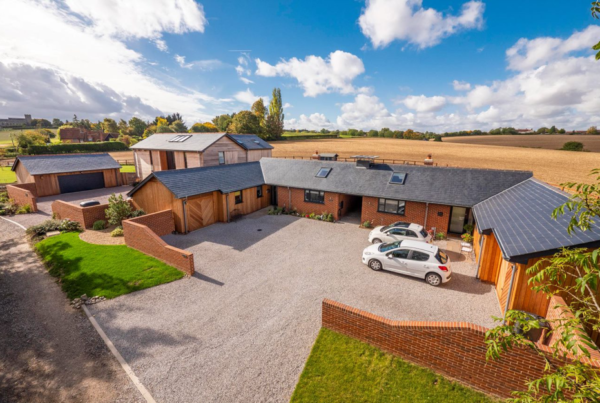Getting the most out of a land sale
With the housing crisis affecting people nationwide, it has had a knock-on effect on agricultural land by inflating its value, and it is thought that it will continue to increase further if the government follows through with its promise to build and provide over 300,000 new properties each year.
When it comes to privately owned agricultural land is estimated to be worth approximately £20,000 per hectare on average in the UK. However, this could rise to as much as £2 million per net developable hectare if planning permission has been gained for housebuilding in certain areas across the country.
Consequently, the potential to capitalise on land profit is encouraging many individuals to look at getting planning permission for land assets to then sell on to house builders. However, there are some important aspects to take into account that can affect a land sale, as well as the process of selling and tax implications too.
Things to consider when selling land
- Land assemblies: most landowners often pool their assets into what is otherwise known as a ‘land assembly’ to make it more profitable to sell land. This is because individually, small amounts of land will not be as lucrative for property developers, who are generally less interested in small sections of land.
- The time and cost involved: it is worth remembering that it can take some time to get planning permission alongside selling land as there are many different stages that can be involved. On average, this could take 18 months but can take years: the larger the site, the longer it will take.
The process of selling land
It is typically a three-step process when it comes to getting planning permission and selling land to a property developer. This works as follows in most cases:
- The Local Plan: prior to getting planning permission, you will need to make sure that your land has formed part of the council in your area’s Local Plan: which means the document that refers to your local area’s housing strategy. It may take some time before this is achieved.
- The application: as soon as you’ve managed to get the land included in the Local Planning you can get planning permission. To apply, you will need to draw up a housing development scheme, which the land promoter can do on your behalf. This scheme is then put to public consultation.
- Sale: if the public consultation goes well land your planning permission has been granted the land agent and land promoter can broker the sale of your land.
Tax implications of a land sale
There will be implications with regard to liability on your sale proceeds as well as inheritance tax applications. The exact tax implications will be depending on the type of land being as well as how you intend to sell it.
Main residence land sale: if it part of your main, long-term residence it can qualify for Principal Private Residence Relief (PPR) this will exempt you from paying capital gains tax (CGT) at 28%.
Land assemblies land sale: the tax implications if selling as part of a land assembly can vary, therefore always seek specialist advice for further details.
Separate land from main residence: this will incur income tax up to 45% in total, or capital gains tax at 20%. The tax you will need to pay will depend on the intention when acquiring the land – for example, whether it was a family asset or a long-term investment.











